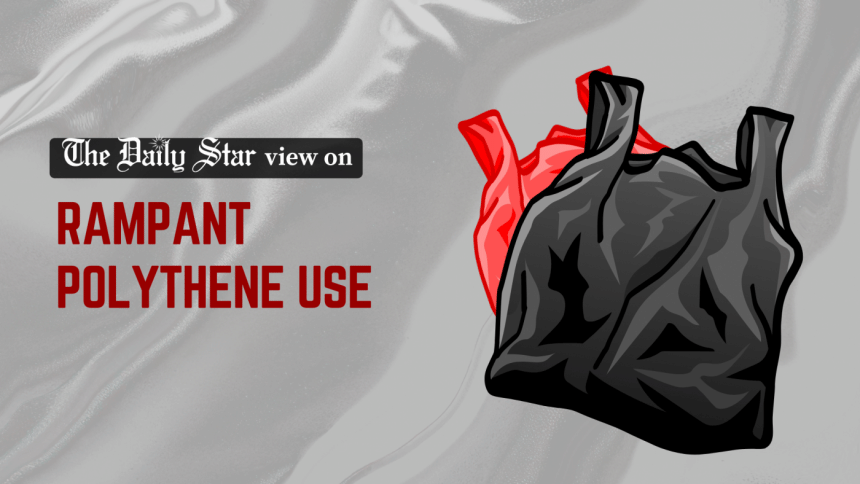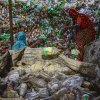Have we forgotten about our polythene ban?

Bangladesh may have been the first country in the world to ban the production, marketing, and use of polythene on March 1, 2002, but frustratingly, its pioneering attempts to curb polythene use seems to have fallen by the wayside over the past two decades. Polythene use is back with a vengeance in shops and markets around the country, making us wonder: why has the government completely given up on implementing the ban, when it has taken multiple laudable initiatives over the years to curb polythene usage and promote eco-friendly alternatives?
For instance, the government enacted the Jute Packaging Mandatory Use Act in 2010, which prohibits the use of plastic or polythene packaging for 11 specific products and outlines severe penalties for individuals who violate the polythene ban. Offenders face up to 10 years in prison, a fine of 10 lakh taka or both. In addition to legal measures, the government has also taken various steps to promote the use of jute as a sustainable alternative to polythene. Yet, all the laws, initiatives, directives and High Court orders over the decades seem to have had no impact on reducing the rampant use of polythene and plastic in the country. A recent study conducted by Environment and Social Development Organisation (Esdo) found that more than 2.5 crore polythene bags are thrown away after being used only once in Dhaka city every day. This deluge of plastic waste clogs drains, canals, ponds, and other waterways, obstructing water flow and leading to frequent flooding even during light rainfall, to say nothing of the irreparable damage to the environment.
We urge the Ministry of Environment to take urgent steps to reverse the disturbing trend. What's the point of having so many progressive laws, policies and directives if no one is bothered about implementing them? It is imperative that the government accepts responsibility for its failure to end this menace. The persistent use of polythene highlights the need for stricter enforcement of existing laws, comprehensive public awareness campaigns, and the development of sustainable and affordable alternatives to polythene and plastic packaging.


 For all latest news, follow The Daily Star's Google News channel.
For all latest news, follow The Daily Star's Google News channel. 









Comments